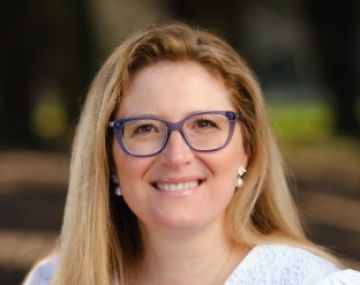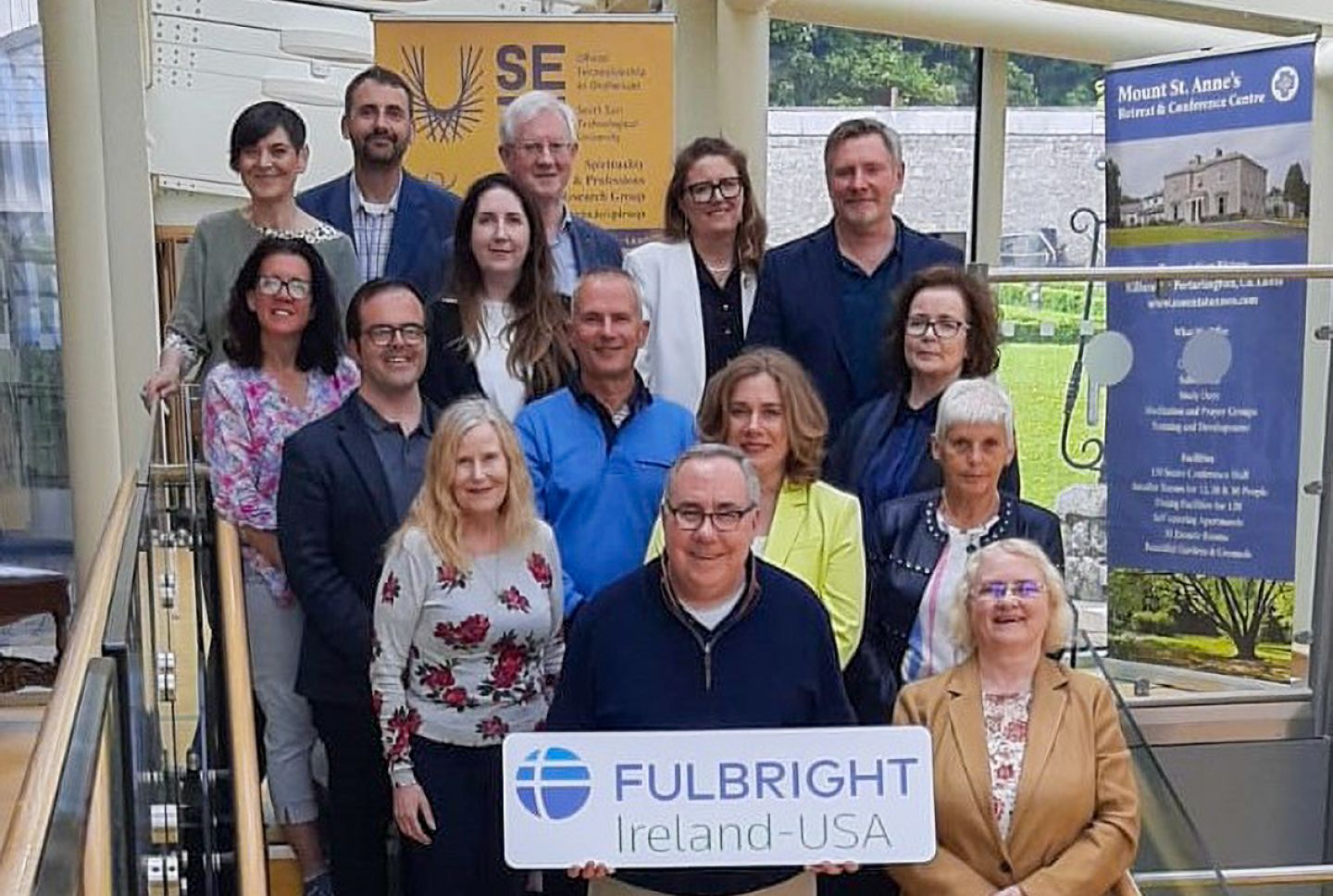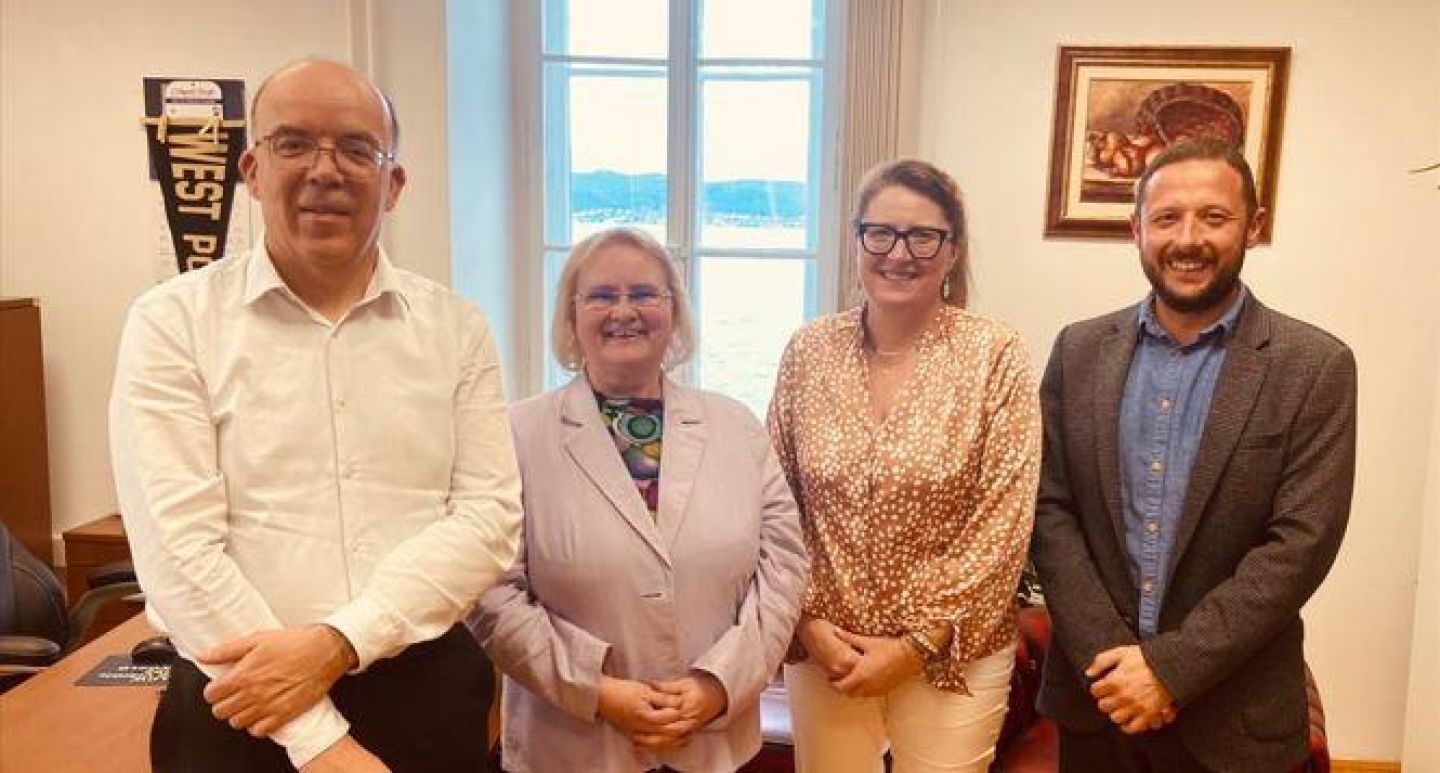
The MA in Spirituality for applications for 2025-26 will be open on November 2024 for non-EU and March 2025 for EU applicants and the closing date is the 15th August 2025. Applications may close earlier if the programme reaches capacity at an earlier date.
The MA in Applied Spirituality is a 12 month, three semester, Level 9 taught programme awarded by SETU Waterford. It brings the resources of spirituality to bear on issues about the meaning of life that come up in work settings, therapeutic settings, family settings, relationships or in the context of social issues regarding just and sustainable living. It aims to meet the needs of those with an interest in pursuing advanced study in the area of contemporary spirituality.
The programme, which will take place at Milltown Park, Dublin draws on a substantial body of literature by writers, scholars and practitioners, as well as mystics, drawn largely from Christian traditions. Other areas of study such as anthropology, psychology, sociology, science, philosophy and the arts are employed to explore the spiritual dimension of human experience and the journey of life in terms of its spiritual dimension and connection.
The programme will give opportunities for participants to consider practical issues associated with identifying and providing for one’s own and others’ spiritual needs / care and to do a research project.
On completion of the programme it is anticipated that the graduates will have the necessary knowledge, skills and abilities to:
Engage meaningfully in contemporary discussions of spirituality
Critically reflect on their own role and the role of others in cultivating spiritualities that contribute constructively to society and relationships
Accompany others on the spiritual journey as well as self-appropriate their own spiritual journey
Successfully manage spirituality research
Progress to PhD studies in spirituality, or to further studies in another discipline with the foundation in spirituality that this programme offers.
Programme Delivery
The MA in Applied Spirituality programme begins with a week in early September (8-12) and classes after that week run in three-day blocks (Thursday – Saturday) per month from October to May, with two three-day blocks in October (early and late). The programme will be delivered at Milltown Park, Dublin.
Delivery
The MA in Applied Spirituality runs over one calendar year and students will be required to attend Milltown Park, Dublin for classes. The programme begins with a week in early September. Classes then run in three-day blocks (Thursday – Saturday) per month from October to May, with two three-day blocks in October (early and late). Semester 1 and 2 consist of taught modules, personal process engagement and skills development. The final semester research project provides the opportunity to focus on an issue of personal interest.
Applied Spirituality Course Structure
All students taking the MA in Applied Spirituality programme must complete the following modules
| Semester 1 | Semester 2 | Semester 3 |
|---|---|---|
| Spirituality, Authenticity and Method / 5 ECTS | Contemplative Psychology / 5 ECTS | Research Dissertation / 25 ECTS |
| Awareness, Attentiveness, Presence Skills / 10 ECTS | Spiritual Accompaniment Literature / 5 ECTS | Integration Process / 5 ECTS |
| Spirituality, Social Concern and Gender / 5 ECTS | Research Training in Spiritual Methodologies and Contemplative Ethics/ 10 ECTS | |
| Journeying with Spirit / 10 ECTS | Research Appreciation and Dissemination / 5 ECTS | |
| Contemporary Spiritual Writers / 5 ECTS |
Applied Spirituality Entry Requirements
Applicants for the MA in Applied Spirituality should hold a minimum of an NFQ Level 8 degree in a field of study related to the programme such as, psychology, social care, philosophy, liberal arts, theology, anthropology healthcare, or similar discipline. Applicants will normally have familiarity with language of spirituality and will have demonstrable experience in the field through, for instance, attendance at retreats, prayer practice, meditation, pilgrimage, social justice engagement, planetary well-being advocacy, or other such activities. Candidates are subject to a pre-entry interview.
Non-standard entry
Applicants who do not hold the standard qualifying NFQ Level 8 qualification criteria, but have relevant work experience and study may be considered for admission to the programme under the Institute's Recognition of Prior Learning (RPL) process and subject to an interview.
English Language Requirements
Applicants whose primary language is not English must submit evidence of competency in English. Please see our website for more details SETU’s English Language Requirements
Please note there will be an admissions conversation with each applicant.
Programme fees
Programme fee details are available from the Postgraduate Fee Section of our website.
Graduates should expect their careers and lives to be enhanced whether they work in human care professions, faith-based service, spiritual resources management, community work, chaplaincy, pastoral care, life coaching or spiritual leadership, or want to focus on personal development, as they will have gained knowledge and understanding of spirituality at an advanced level.
Graduates will have gained skills in contemplative research which would prove useful in organisations whose remit is in the broad area of spiritual care in both statutory and non-statutory sectors.
Graduates may choose to progress to PhD studies in spirituality, or to further studies in another discipline with the foundation in spirituality that this programme offers.
Currently there are PhD students researching spiritual practices for health recovery; new pilgrimage routes; inner practices for sustainable development (SDGs) and the biographies of contemporary spiritual teachers.
Graduates should expect their careers and lives to be enhanced whether they work in human care professions, faith-based service, spiritual resources management, community work, chaplaincy, pastoral care, life coaching or spiritual leadership, or want to focus on personal development, as they will have gained knowledge and understanding of spirituality at an advanced level.
Graduates will have gained skills in contemplative research which would prove useful in organisations whose remit is in the broad area of spiritual care in both statutory and non-statutory sectors.
This programme is open to international applicants, providing a supportive and dynamic learning environment. International applicants are encouraged to apply online through the international admissions portal. The application process typically requires academic transcripts, proof of English language proficiency, a personal statement, and relevant supporting documents. For detailed entry requirements and deadlines, visit our Study at SETU section of the website.
Course Leader




